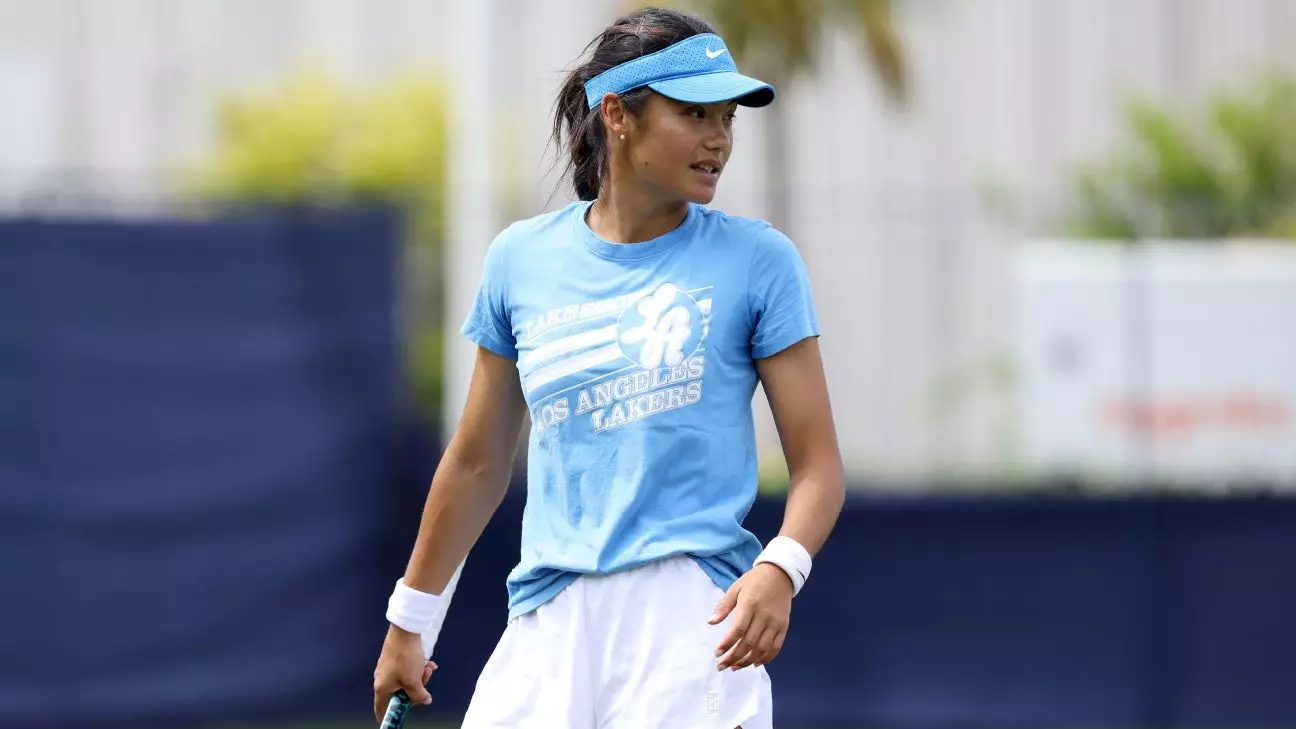Emma Raducanu, the resilient talent who captured hearts and headlines as the 2021 US Open champion, has been navigating through a harrowing experience that no athlete should have to face—being stalked. Just as she gets ready for the prestigious Wimbledon tournament, news emerged that the All England Club took stringent measures to prevent a man who had been stalking her from attending the event. This is not just a personal battle; it reflects a larger issue of safety for female athletes, who often become the targets of obsession and harassment in a public spotlight.
Raducanu’s distressing ordeal unfolded over the past year, where she was trailed to WTA events around the world, including illustrious tournaments in Singapore and Abu Dhabi. This culminated in an anxiety-inducing moment at the Dubai Championships, where she broke down upon seeing her stalker in the stands. It’s a deeply unsettling reality that speaks to the vulnerability athletes, particularly women, experience amidst the pressures of public life. The necessary action taken by Wimbledon officials demonstrates a significant step in acknowledging and addressing this pervasive threat.
The Safety Net of Supportive Measures
The timely intervention of both local police and Wimbledon organizers not only blockaded the stalker from the tournament but also sent a powerful message: the well-being of athletes must be prioritized. Raducanu expressed her gratitude, stating, “Wimbledon and everyone did an amazing job.” Such proactive measures are essential in today’s sporting landscape, where athletes should not find themselves battling fear alongside competition.
It’s encouraging to see the extra security detail implemented at events, as Raducanu noted that this has allowed her to feel “much safer.” The role of security in ensuring a hostile-free environment cannot be overstated; with bustling crowds and high emotions, a thick layer of protection can foster a sense of comfort that allows athletes to perform at their best.
A Shared Struggle and the Call for Change
Raducanu also used her platform to echo sentiments shared by fellow athletes, such as British No. 2 Katie Boulter, who bravely discussed her own experiences with online harassment. This is not an isolated issue but rather a systemic problem facing countless women both within and beyond sports. The conversation around mental health and personal safety needs to be amplified. Female athletes are often scrutinized and objectified, and compelling voices like Raducanu’s are pivotal in addressing these pressing issues.
The stark reminder of past traumas in sports history—such as the harrowing attack on Monica Seles—serves to reinforce the urgency of implementing robust safety protocols. Raducanu’s perspective, drawn from both historical context and personal experience, reflects a growing consciousness to protect female athletes.
Raducanu’s resilience in the face of adversity not only embodies the spirit of a champion but also serves as an enlightening testimony urging society to acknowledge the vulnerabilities women face. Both the sporting world and its fans must remain vigilant, fostering environments that prioritize athlete safety, dignity, and respect. The evolution of conversations surrounding harassment is more essential than ever as we strive for a more equitable future in sports.


Leave a Reply